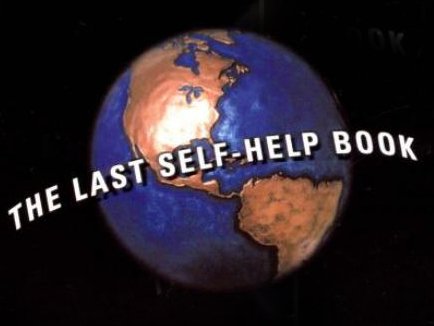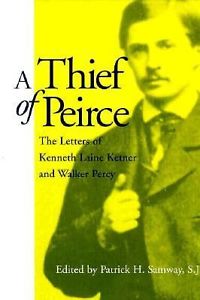
Lost in the Cosmos is one of those books that you immediately like, even if you don’t quite understand it. It seems to apply to just about everything that’s floating around in your life. Figuring out why it does that is another story. The main thing is that it isn’t an easy satisfaction like a Happy Meal or a Dan Brown book might be.
The indirect communication is half the fun of reading Walker Percy. He doesn’t give you easily digestible interpretive keys to his crazy tales. He wants you to struggle a bit in order to coordinate what he’s saying with the world as you and others experience it.
His writing shouldn’t be immediately comprehensible, because if it is, then you’re either A) lying to yourself B) not lost in the cosmos C) some sort of genius (very unlikely) D) none of the above E) All of the above.
Inchausti’s Subversive Orthodoxy gave me a new perspective on Percy by placing him right before the chapter on Dorothy Day, Thomas Merton, Martin Luther King, Jr., E.F. Schumacher, and Wendell Berry entitled “Antipolitical Politics.”
In the section on Walker Percy Inchausti quotes the following passage from Lost in the Cosmos that turns our economic schools on their heads:
“Why do people often feel bad in good environments and good in bad environments? Why did Mother Theresa think that affluent Westerners often seemed poorer than the Calcutta poor?”
Percy answers:
“The paradox comes to pass because the impoverishments and enrichments of a self in a world are not necessarily the same as the impoverishments and enrichments of an organism in an environment. The organism is needy or not needy accordingly as needs are satisfied or not satisfied by its environment.
Percy then goes on to explain how a world functions differently from an environment:
“The self in a world is rich or poor accordingly as it succeeds in identifying itself with a world-sign, such as a totem; religiously by identifying itself as a creature of God. But totems don’t work in a scientific age because no one believes, no matter how hard he tries, that he can become a tiger or a parakeet (cf. the depression of a Princeton tiger or Yale bulldog, one hour after the game.)”

The distinction between an environment and a world is crucial. You might know Percy spent an inordinate amount of time reading existentialists, phenomenologists, and other philosophers while convalescing from tuberculosis. The passage above combines concepts straight out of Heidegger‘s Being and Time and supplements them with a little Peirce.
A human environment (or any animal’s) is shaped by a dyadic stimulus-response relationship between the human and his or her surroundings. The human (not really yet a person) only reacts to a limited area that stimulates it and somehow corresponds to its physical or other needs. It is very limited in its range. This impoverished twofold structure is precisely the background to how both psychology, the reductionist sciences, and the dismal (I wanted to say dreadful) science, economics, see people.
On the other hand, a world has a triangular structure because it involves human beings, the objects of their consciousness, and the words they give them. The satisfaction here is not of a stimulus-response (I see iPad, I buy iPad = satisfaction), instead the satisfaction comes from sharing a common symbolic world with other people.
The best analogy for what it means to satisfy these sorts of desires (as opposed to needs) is those situations when you are talking to someone who understands you, who is paying attention to what you’re saying, those situations when you’re having a heart to heart talk.
This kind of experience is something that economic theory cannot satisfy, because it goes beyond its (dyadic) model of how humans function: humans have needs and limited resources and time to fulfill them (everything is reduced to this plane).
Until reading Inchausti’s book I didn’t make a connection between Walker Percy’s Lost in the Cosmos, which I’ve read countless times, and critiques of economic theory. I suppose it also makes sense of why man does not live by bread alone. Symbolic relations are what really makes us human. Plus, they take us out of the zero-sum logic of dyadic-economic relations by giving us the ability to share a common world that is infinite in its riches.
Note how the family in this KFC ad is caught within a commercial environment of stimulus and response. The fact that the parents complain about the kids not communicating with them at all is especially telling about how advertisers imagine us as inhabiting an environment, not a world.
In the hierarchy of being anything below a world is silence.
Ultimately, this is the problem I have with recalibrating the faith to suit economic theories.
http://www.youtube.com/watch?v=rMT9NAvYKkY











